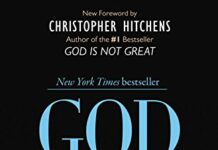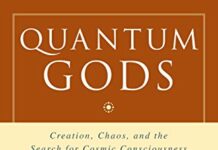
Ebook Info
- Published: 2012
- Number of pages: 408 pages
- Format: PDF
- File Size: 2.73 MB
- Authors: Victor J. Stenger
Description
A thorough and hard-hitting critique that is a must read for anyone interested in the interaction between religion and science.It has become the prevalent view among sociologists, historians, and some theistic scientists that religion and science have never been in serious conflict. Some even claim that Christianity was responsible for the development of science. In a sweeping historical survey that begins with ancient Greek science and proceeds through the Renaissance and Enlightenment to contemporary advances in physics and cosmology, Stenger makes a convincing case that not only is this conclusion false, but Christianity actually held back the progress of science for one thousand years. It is significant, he notes, that the scientific revolution of the seventeenth century occurred only after the revolts against established ecclesiastic authorities in the Renaissance and Reformation opened up new avenues of thought. The author goes on to detail how religion and science are fundamentally incompatible in several areas: the origin of the universe and its physical parameters, the origin of complexity, holism versus reductionism, the nature of mind and consciousness, and the source of morality. In the end, Stenger is most troubled by the negative influence that organized religion often exerts on politics and society. He points out antiscientific attitudes embedded in popular religion that are being used to suppress scientific results on issues of global importance, such as overpopulation and environmental degradation. When religion fosters disrespect for science, it threatens the generations of humanity that will follow ours.
User’s Reviews
Editorial Reviews: Review Praise for the New York Times bestseller God: The Failed Hypothesis:”I learned an enormous amount from this splendid book.”-Richard Dawkins, author of the New York Times best-seller The God Delusion”Marshalling converging arguments from physics, astronomy, biology, and philosophy, Stenger has delivered a masterful blow in defense of reason. God: The Failed Hypothesis is a potent, readable, and well-timed assault upon religious delusion. It should be widely read.”-Sam Harris, author of the New York Times bestsellers, The End of Faith and Letter to a Christian Nation”Extremely tough and impressive…a great book…a huge addition to the arsenal of argument.”-Christopher Hitchens, author of the New York Times bestseller God Is Not Great About the Author Victor J. Stenger (1935 – 2014) was an adjunct professor of philosophy at the University of Colorado and emeritus professor of physics and astronomy at the University of Hawaii. He was the author of the New York Times bestseller God: The Failed Hypothesis, God and the Atom, God and the Folly of Faith, The Comprehensible Cosmos, and many other books.
Reviews from Amazon users which were colected at the time this book was published on the website:
⭐Stegner, in “God & The Folly of Faith”, attempts not necessarily to answer whether there is a God/Religion is true/untrue (although he does inadvertently). His other books focus more on that. In this book he’s more focused on specifically whether science and religion (in their current forms are compatible).Having read some of his other books (“Has Science Found God”, “God The Failed Hypothesis” & “The Fallacy of Fine Tuning”) I can say there is alot of overlap. Actually this book feels kinda like a mixing of all his past books with a touch of new ideas and from a new perspective. That is both good and bad. It’s good in that Stegner makes a complete argument leaving few if any stones unturned. Futhermore his writing has gotten significantly better with less technical jargon and better articulation, analogies and humor. It’s bad however as the book is quite long, all over the place at times, and alot to digest.Despite this I enjoyed the book and learned quite a bit about things outside of the god debate (such as the history and origin of science as we know it, physics concepts and more). Stenger was an amazing and brilliant man who really knew what he was talking about and in this book he doesn’t disappoint.I feel though this book is best read in conjunction with his other books. At bare minum I would read “God The Failed Hypothesis” before reading this book although for the complete package I would pick up “Has Sceince found God” & “The Fallacy of Fine Tuning”. If you take the time to read these book then you will likely have almost all your question about god, religion and their relationship with science addressed and will be able to make a fair judgment on what you believe.You may also want to read other, more mainstream books like “The God Delusion” (Dawkins), “The End of Faith” (Harris) and “Godless” (Barker). Their a little less insane (in terms of material to digest), read easier, and better for those new to atheism or casually reading.I recommend this book but do be prepared for its a lot to digest.
⭐This is the 2nd book I’ve ready by Dr. Stenger, the first being “Has Science Found God?”. This book is generally very concise with its arguments and conclusions, and it gives you a lot of subject matter in a fairly short period (the text is done at page 322). It is well documented with extensive end-notes and contains a very useful bibliography and index. It gives a nice overview of the history of the origins of religion and the major developments in science and scientific thinking and knowledge. And the point is to contrast how science has simply been the most successful system of human thought ever devised, in stark contrast to the “folly” of all kinds of religions and religious thinking. In short, science works, and has demonstrated time and again, and in remarkable fashion, that it works whereas religious thinking has never demonstrated that it is any kind of reliable system for understanding how the world actually works. Stenger guides us through a history and discussion of this contrast in very clear and easy to understand language – for the most part. Those of us who are not practicing scientists will always struggle to comprehend some of the more difficult concepts, especially when one starts to get into areas of relativity, quantum mechanics, discussions of certain theories, and so on. I’m not talking about the math, which obviously nobody but practicing experts can understand (and which Stenger stays away from), but rather, even conceptual discussions in layman’s language can end up being mind-twisters. Admirably, Stenger does as good a job as anybody in making these topics understandable to the normal (but hopefully intelligent) reader.I always worry a bit when I get these types of books that it will simply be rehashing arguments that I already know, but Stenger is good in that even when he is going over topics that you might’ve heard before, you (or at least I) always learn something new about it or end up realizing some implication that I didn’t catch before. And also the book is quite up to date (published 2012) when it discusses the state of religion and belief in the world and the U.S. Of course, part of Stenger’s argument is that it’s time to abandon religious and all forms of thinking that are grounded in some form of superstitious or supernatural assumptions, as they simply do not work. With centuries of proof that science does work, and that no other system of thinking has ever even come close to approaching its success in helping us discover and understand how the world works, it’s time to “evolve” out of our supernatural past, and stick with what works. I couldn’t agree more, but living in America these days, it’s hard to see any light at the end of the tunnel. In the end, will this book do anything except preach to the choir? I doubt it, but at least it should strengthen your resolve to hear such an expert explain how and why we’re on the right side of the issue.
⭐Many atheists counterpose science against religion, but they often just draw an over-simplified contrast between their methods or attack soft targets like creationism. Stenger, to his credit, engages with more liberal theologians too. He does not treat theists (of whom I am one) as idiots – unlike Dan Barker, whose Foreword seems to belong to a completely different book. Instead, he saves his strongest criticism for Stephen Jay Gould’s view that science and religion are non-overlapping magisteria (NOMA). Science and religion may not be direct rivals – they are not trying to do the same thing – but there are significant areas of overlap between them.Stenger begins by looking at the history of relations between religion and science. He argues against the view that Christianity formed congenial soil for the growth of science in the West, but he does not overstate the occasional tensions between them. He sees them as being in more conflict now.He has biting criticisms of what he calls ‘Quantum Spirituality’, and stresses that quantum physics is not as mysterious as some people like to make out. On wave-particle duality he says that individual physical entities are particles and only groups of particles behave as waves. This would be a satisfyingly straightforward resolution to the duality if it is true, but does it really accord with the well-known observation that a dual-slit experiment produces an interference pattern even when single photons are fired one after another?Stenger then moves on to cosmology, and the argument that the universe is ‘fine-tuned’ to enable life. He has discussed this in more detail elsewhere. Many cosmologists speculate that our universe may be just one of many, which would make the fine-tuning less surprising, but Stenger argues that even as a single universe the physical constants are not as finely-tuned as we are led to believe. It was useful to see each physical constant discussed separately, rather than as one big improbability. Most of his claims here appeared plausible but I did not understand his argument that the speed of light, Planck’s constant and Newton’s constant cannot be fine-tuned ‘because their values are arbitrary, depending only on the system of units being used’. Doesn’t this just mean that their numerical values are arbitrary, not the measurements themselves? In any case, there is always the possibility of a multiverse to fall back on.The foregoing counters a popular argument in favour of God’s existence. It does not form an argument against it. The bigger challenges to theism arise if science lends support to materialism and reductionism. Some would add determinism – the idea being that if the world is physically determined it leaves no room for God to act. Stenger, though, is not a determinist. Instead he offers the intriguingly different angle that the extensive role of chance in nature undermines the possibility of God giving the universe a purpose.On materialism, he presents a pretty good case against a disembodied ‘soul’. His arguments for reductionism are not as strong. His approach is to give a few examples of how certain higher-level properties (eg. gas pressure) are just aggregate properties of individual particles. But showing that some higher-level properties are reducible hardly implies that they all are. Some non-reductionists make the further claim that higher levels of complexity can have a causal impact on lower levels. Stenger dismisses this downward causation as ‘just the Aristotelian “final cause” renamed’. It need not be. It is quite possible for a top-down process to be non-purposive. For example, natural selection describes how interactions between an organism and its environment affect the likelihood of a given sequence of DNA being replicated – ie. what happens at the molecular level is partly determined by what happens at the ecological level, as well as vice versa. In fact, when he discusses morality, Stenger himself proposes a process that would be both top-down and purposive, when he endorses Dawkins’s early claim that people can rebel against their selfish genes.The books ends by claiming that science and theism are not just in tension but incompatible. This is a very strong claim – all the more so given that Stenger is well aware of how varied theistic understandings of the world are. I cannot say that he succeeds in establishing this incompatibility, but he does provide plenty of stimulating discussion of most of the issues at the current interface between science and religion. Overall, this is one of the better books that the New Atheists have so far produced.
⭐The book took me a long time to read because every paragraph was packed with so much thought and information. The compatibility of science and religion has interested me for a long time and I wanted to read Stenger’s take on it. Stenger lays out his arguments clearly and in my opinion proves that science and religion, especially the Abrahamic religions, collide. For example, there’s no God guiding evolution (i.e. intelligent design), and Stenger gives convincing evidence for it on the basis of the very nature of Darwinian evolution. People who insert God into everything really should read this book carefully, but unfortunately they won’t as they don’t want their faith challenged.
⭐A meticulous historical review of science, the text is more about the ascension of secular thought and the refinement of the scientific method with resulting conclusions than about god bashing — although, refreshingly, there is some of that too! Stenger makes his case with commodious room to spare — no contest. His presentation is fair and objectively composed with a few points scored along the way against his thesis, Folly of Faith, but the outcome was never in doubt. Science wasn’t really tested by faith. An excellent read for believers and non-believers, but the conclusions would test the faith of believers, if the least bit open-minded about reality.
⭐Victor Stenger writes with passion on the need to end our strange double-think on science and religion. Religion is not a harmless aberration but a positive ‘folly’ that causes great damage in many unsuspected ways – religious wars and genocides being just the most obvious. People who base their actions on faith cannot be reasoned with however stupid and self-defeating their consequent actions are. Stenger provides chapter and verse of the ill effects that faith still visits upon even highly civilised societies and he wonders at the ability of a few leading scientists to compartmentalise their minds into non-overlapping ‘magisteria’ in Stephen J Gould’s terminology. However the book is not just an attack on ‘blind’ faith but a very informative description of our present knowledge in biology, physics and cosmology. He writes in a style that the non-scientist can easily follow and I have no hesitation in recommending the book to any who take an interest in science and civilisation.
⭐An un-miltant atheist. Should be read without religious defenses. being upped. I agree that faith in someone OUT THERE is a folly
Keywords
Free Download God and the Folly of Faith: The Incompatibility of Science and Religion in PDF format
God and the Folly of Faith: The Incompatibility of Science and Religion PDF Free Download
Download God and the Folly of Faith: The Incompatibility of Science and Religion 2012 PDF Free
God and the Folly of Faith: The Incompatibility of Science and Religion 2012 PDF Free Download
Download God and the Folly of Faith: The Incompatibility of Science and Religion PDF
Free Download Ebook God and the Folly of Faith: The Incompatibility of Science and Religion



